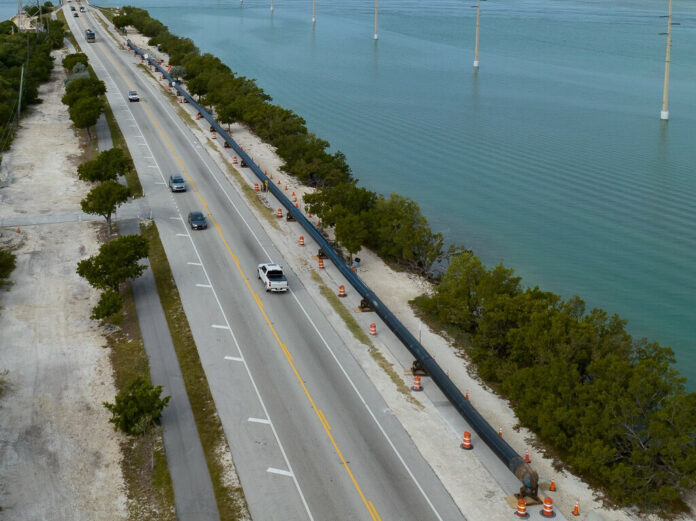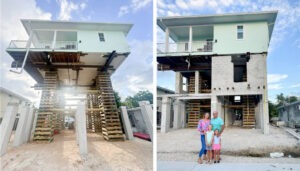
Thousands of vehicles traverse the Florida Keys on any given day, between the large out-of-county workforce and visitors flocking to their island destinations. But an Overseas Highway that’s lined with vehicles, trucks hauling boats and RVs isn’t the only busy thoroughfare on the island chain.
Beneath the road, millions of gallons of water from the Biscayne Aquifer — the Keys’ primary source — rush through a 40-year-old transmission main to the water treatment plant, eventually reaching faucets inside Keys homes, businesses and resorts.
Late last month, some 24 millions gallons of water flowed through the pipes to the Keys. According to Greg Veliz, executive director for Florida Keys Aqueduct Authority (FKAA), they couldn’t pump one gallon more.
“We were running the entire day at 24 million gallons,” he said.
With an aging transmission line nearing its 50-year lifespan, FKAA is setting out on a major overhaul of its 130 miles of piping. With plans to replace a little bit at a time, FKAA’s project begins at Tea Table Key in Islamorada, MM 79, through Whale Harbor Channel near MM 84. FKAA is installing roughly four miles of new cathodically-protected, 36-inch-diameter steel pipe to replace the current 30-inch main. Cathodic protection is used to control corrosion of the metal surface.
According to FKAA, the new transmission main will be installed via open-cut trench installation. The contractor leading the replacement work expects to place around 150 linear feet of piping into the ground per day.
The project also includes connection to existing mains and master taps. New transmission mains will also be installed at the Tea Table Relief and Whale Harbor bridge crossings via horizontal directional drill. At the bridges, Veliz said the new pipes will be installed underwater so they’re not threatened by high winds or storm surges.
Replacing four miles of transmission line in Islamorada will cost about $42 million, according to FKAA. A total of $35 million is funded through grants while $7 million is funded through low-interest loans. FKAA was successful in securing $20 million from the state in last year’s budget. Veliz said the village of Islamorada was instrumental in helping FKAA obtain those funds.
“We’re going to continue to try to deliver you good, quality water,” he said. “We continue to pump out a good product. In order to keep doing that, we gotta do this project.”
Motorists driving through the southern end of Islamorada can expect construction activity to pick up in April when excavation for the water main begins. While the southbound lane will be closed for construction during weekdays, Veliz said two-lane traffic through the construction zone will be maintained by using the shoulder. Bike lanes and the Florida Keys Overseas Heritage Trail in the area will also remain open.
“We’ll be able to get you in and out except in the immediate area where we’re working,” Veliz said.
Veliz said FKAA received approval from Florida Department of Transportation to have a 24-hour work schedule. But construction won’t take place on weekends, nor will it happen on busy holidays such as the Fourth of July or during the two-day lobster mini-season at the end of July.
FKAA said project completion is expected around early 2025.
























